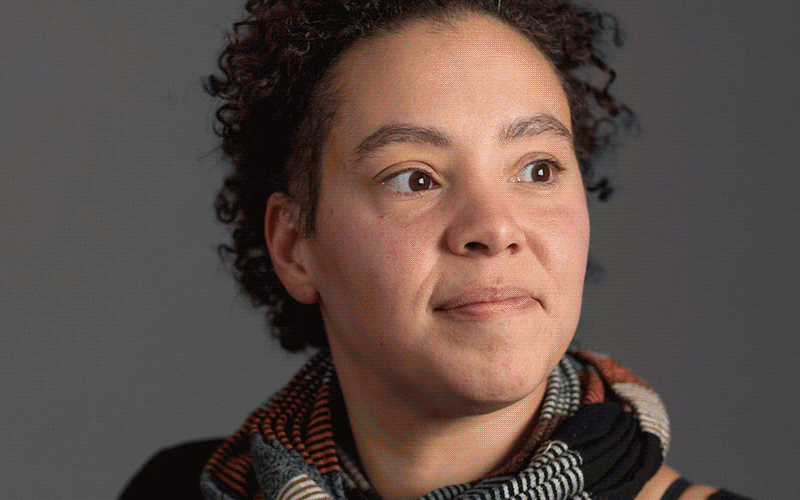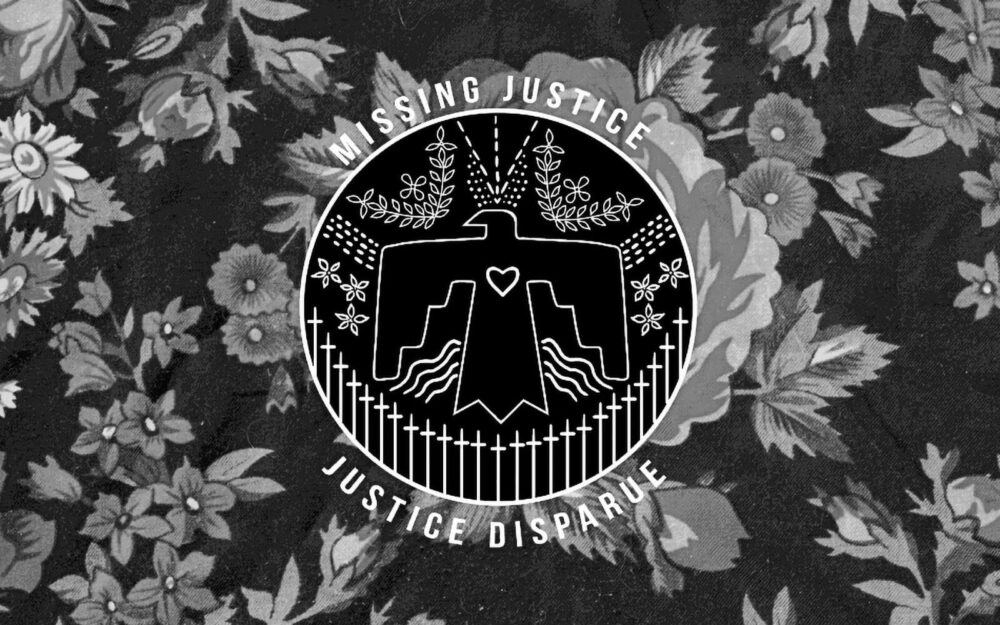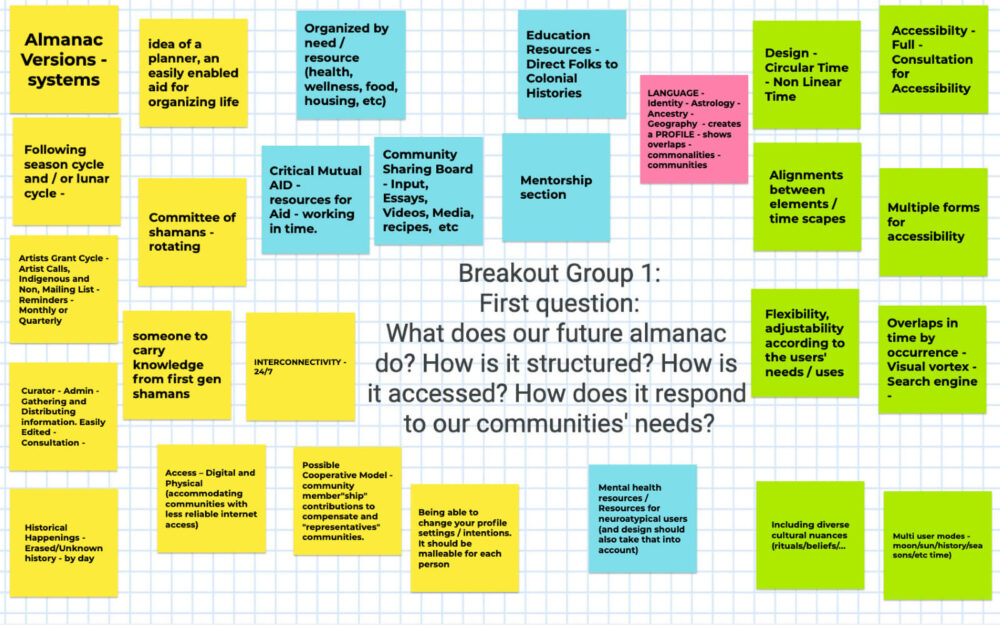← Explore
DEL Reflection: The Artist’s Almanac
“One of the prompts that Alisha and I give is to ask people to go as far into the future as it takes for them to have their needs met. Some people say ‘in 10 years I’ll have X, Y, and Z.’ For others, it’s ‘in 1,000 years, X, Y, and Z.’ And some say ‘in 10,000 years, after the super volcano erupts and wipes out everything, and reanimates the earth—then we’ll talk.’”
Liner Notes:
In a conversation with Artengine’s Ryan Stec, DEL resident Suzanne Kite describes the thinking and process that informed the Artist’s Almanac. While all DEL projects were impacted by the pandemic, Suzanne’s was transformed by its strains. Pivoting from her initial plan to develop a resource for racialized artists, her almanac became a container for a broader conversation about care and support. In addition to Artengine, she enlisted Concordia University’s Feminist Media Studio and the HTMlles Festival to organize a consultation with a 20 artists and cultural producers.
In the wrap-up interview, she dives deep into her thinking around the telescoping time scales required for healing across generations and how futurity is relative. She also takes care in articulating the difference between research-creation (‘producing’ knowledge) versus consultation with elders or stakeholders, and, more broadly, ruminates on her thinking around how to build bridges of solidarity and support between marginalized communities.
These quotes, notes, and references are highlights from an hour-long conversation that took place between Suzanne and Ryan in Spring 2021. Click through below and watch the full interview.
01 – Facilitators
Suzanne enlisted a team of A-list facilitators to develop the Almanac. Alisha B. Wormsley, Jas M. Morgan, and Lupe Pérez, brought experience in education and community organizing from Afrofuturist, Indigenous, LGBTQ2S+, and design justice circles, to help structure and coordinate the community consultation.
02 – A list of lists
A ‘list of lists’ was compiled to take stock of resources for collective care that were already circulating. In addition to Missing Justice (image), which raises awareness about violence and discrimination against Indigenous women, some of the Almanac references and precedents include Adrienne Huard’s writing, Afronautics Research Lab, Black Feminist Study, CyberFeminism Index, Pirate Care, Queer.Archive.Work, and trans-resist.
03 – The Virtual Whiteboard
Since meeting face-to-face was impossible, workshop participants gathered around virtual whiteboards. Instead of a running headlong into design sprint, they interrogated first principles, asking questions like ‘how does the almanac respond to community needs?’ (image), and ‘what consultation should be done?’


